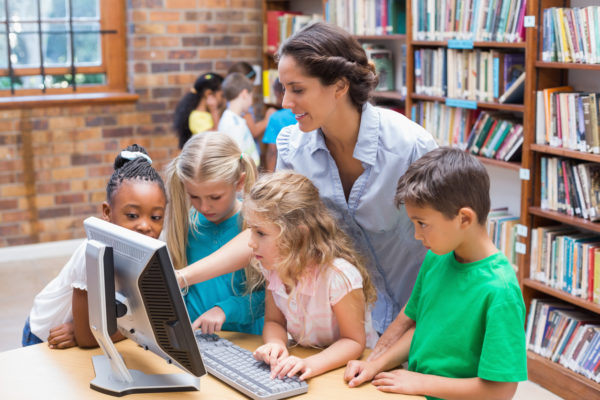Teachers of 2020, congratulations on a job well done. Most K-12 ceremonies are called “graduation,” which means “step.” College ceremonies, by contrast, are known as “commencement,” or “beginning.” As college ends, a new chapter starts. A chapter like none that has come before will soon begin, not only for professional teachers of Texas like me, but for the millions of parents who have been supervising their children’s education from home when schools were closed.
All we can be certain of is that next year will not look like this year. It certainly won’t look like last fall, with classrooms full of kids learning and eating and playing together. It won’t look like the rapid unplanned shutdown of this spring, either. We don’t really know yet what fall classes will be like, but we can be sure that more change is coming.
What have we learned this year? Education depends on fostering personal connections among students and their instructors in order to transform information into knowledge. That is true no matter how many students we have or what format we teach in.
Teachers know how to do this in face-to-face classrooms. Parents know how to do it in raising their children. For all of us, migrating abruptly to an online teaching environment in the middle of a pandemic strained our skills to the breaking point. There were many losses, failures and frustrations along the way.
Even so, a lot of things went well. We figured out how to use videoconferencing, although “you’re still muted” is now a fixture of classroom dialogue. We got better at organizing and delivering online educational materials. We devised new ways to test what students could do. But improved access to information is not enough to work the magic of turning information into knowledge.
Much of that transformation depends on keeping students engaged. Some students can thrive while working on their own, but most rely on their teachers to create structure and motivation. In fact, teaching is like parenting in this regard. Sometimes kids don’t really care about what we’re asking them to do. But they do it anyway because they don’t want to disappoint us or their fellow students. Almost despite themselves, they fall into the habit of doing their work, and they learn.
This dependence on teachers entails a solemn responsibility. It is our job to believe in our students even – or especially – when they don’t believe in themselves. To cheer them on, to sympathize with their struggles, and to show them the way forward. We know this because in these difficult months, students have thanked us again and again for believing in them. For caring about them as people and for believing that they can succeed.
Whether our teaching succeeds in the fall will depend largely on how well we are able to create those bonds outside of face-to-face classrooms.
For most of us, that is a work in progress. Teachers will need more time and training to learn how to do this effectively online. Parents need more flexibility and recognition than ever before about their impossible balancing act of parenting, working, and now teaching as well.
Our usual methods of educational assessment focus on information, not knowledge. They do not reward the teacher who spends as much time reaching out to struggling students as in developing instructional videos. They do not recognize the student who learns both course material and life skills by persisting in a tough class. Yet that is how education truly succeeds or fails, now more than ever.
What will happen this fall? Will we have the resources to connect with our students in our future classrooms? Will the ways we measure success reflect the ways we are teaching now, and the challenges that students are facing?
Our next chapter will be about those questions. The experiences of the Teachers of 2020 should play a key role in coming up with the answers.
Deborah Beck is an associate professor of classics at The University of Texas at Austin.
A version of this op-ed appeared in the San Antonio Express News, Waco Tribune Herald, Austin American Statesman and the Lubbock Avalanche Journal.




